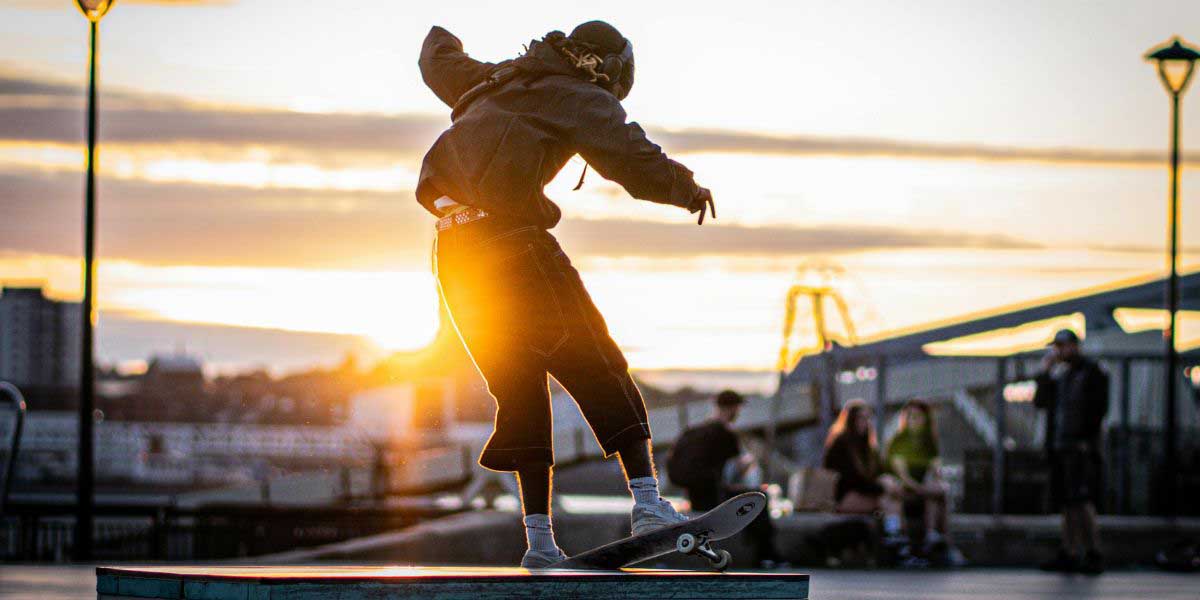Skateboarding is like dancing on wheels, doing cool moves, and feeling free. But sometimes, skateboarders face hate from some people in society. Why do people hate skateboarders? This article prohibits the skateboard stigma, focusing on misconceptions & stereotypes, noise, nuisance, and the impact on property damage. Additionally, we will also suggest ways to help everyone get along better.
Why Do People Hate Skateboarders? 8 Common Reasons
Not everyone hates skateboarders or skateboarding, but there are definitely some misconceptions that can lead to negativity. Here are some reasons why people do not like skateboarders:
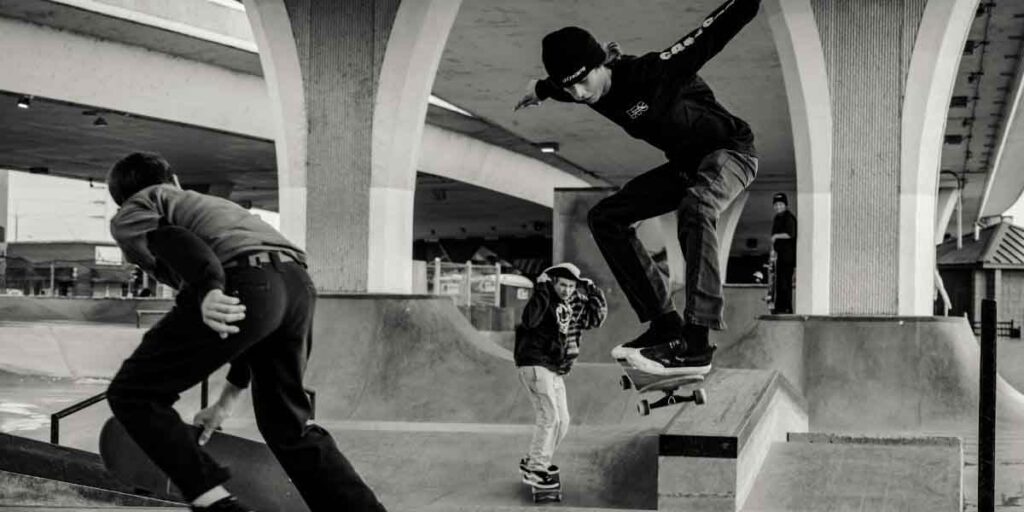
1. Historical Stigma
The animosity towards skateboarders started when the sport began. In the 1970s and 1980s, skateboarding was linked to counterculture movements. Consequently, people saw skateboarders as rebels and non-conformists who rejected societal norms. The media often showed skateboarders as troublemakers and delinquents. Over time, this negative image stuck in people’s minds.
2. Public Space Concerns
This is one of the main reasons ‘’why people hate skateboarders’’. Skateboarders like to ride on sidewalks, plazas, parks, and other public areas for their activity. These spaces aren’t always designed for skateboarding. It can lead to conflicts with pedestrians and worries about safety.
3. Misconceptions about Skateboarding and Skateboarders
Some people think skateboarding is only for rebellious teens, but that’s not true. A study in 2019 found that people of different ages like skateboarding. The average age of skateboarders is 26 years old.
Although some might link skateboarding with causing trouble, a survey showed that 95% of skateboarders feel safer in skateparks than in other public places. This suggests that skateparks can actually make communities safer. Additionally, they contribute to a more united community.
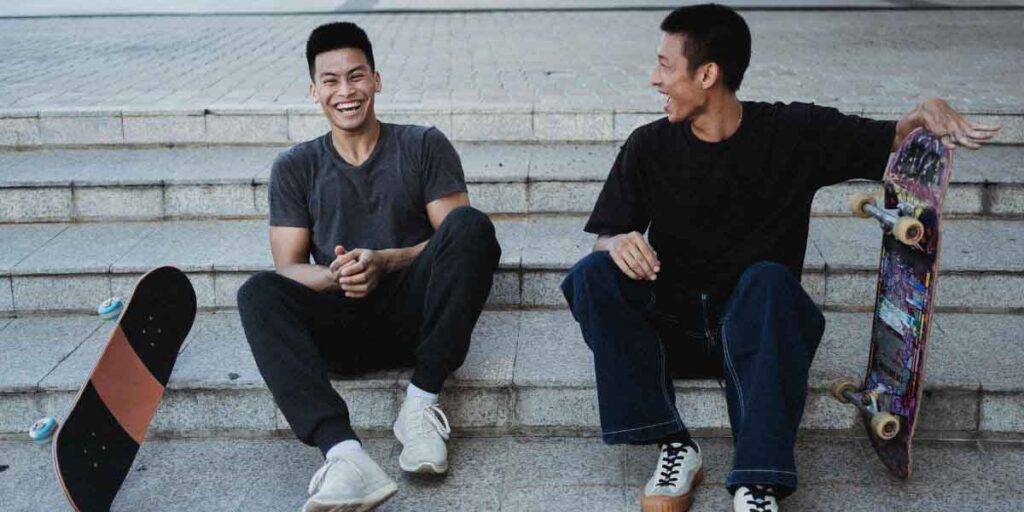
4. Stereotypes
Skateboarding culture has sometimes been associated with rebellion or recklessness. This can lead to people assuming all skateboarders are troublemakers, even if that’s not the case.
5. Noise and Nuisance
Some people feel uneasy when they hear the loud noise of skateboard wheels rolling on the concrete and see skaters moving through busy city streets. Especially when tricks are attempted. This might bother people who live or work in cities. They might feel like their personal space and peacefulness are being disturbed. This can make the relationship between skateboarders and non-skaters more tense.
6. Property Damage
Skateboarders might grind on rails, stair sets, benches, or ledges to do tricks. They see these as ways to be creative. But sometimes, property owners see them as things that can get damaged. As a result, this can cause disagreements between skaters and property owners about where skating should happen. Additionally, this can also be frustrating for people who want to use those spaces for their intended purpose.
7. Safety Concerns
Skateboarding is inherently risky, and some people may worry about accidents or injuries. They also believe it is dangerous for children. These concerns can apply to the skateboarders themselves or to others in the vicinity. As a result, this safety concern might lead to negative perceptions of skaters.
8. Fear of the Unknown
When people don’t know much about something, they might not like it. Some folks just don’t get why skateboarding is cool or how hard it is to do. Not understanding can make them feel weird about skateboarders and what they do. They might even get mad or unfriendly toward them.
Overcoming Anti-Skateboarding Sentiment
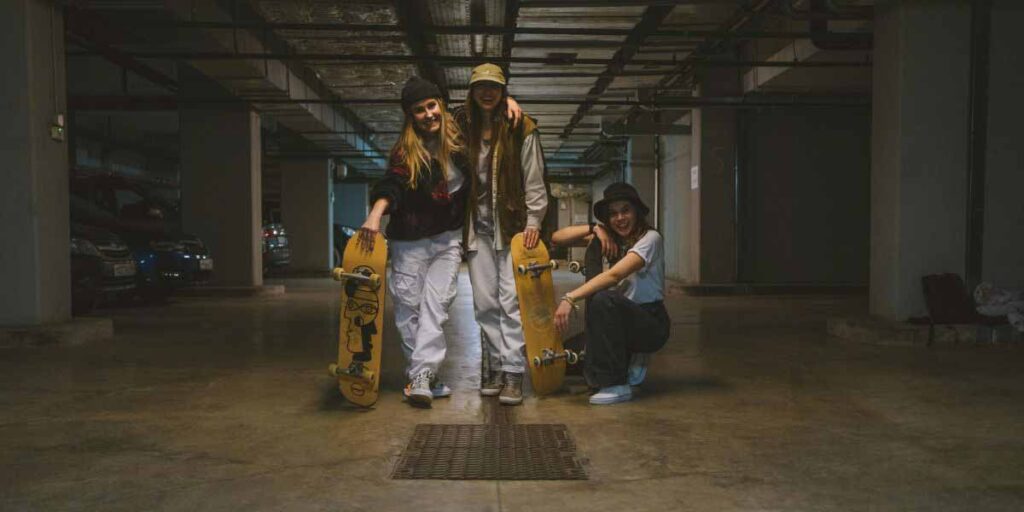
Some people think it’s dangerous, noisy, or just for troublemakers. This negative attitude is called anti-skateboarding sentiment. Here’s how we can change it.
Education and Awareness
First of all, we need to educate people about skating and skateboarding. Because many don’t understand skateboarding. They might think it’s just about tricks and stunts. But it teaches balance, perseverance, and coordination. Additionally, skateboarding is a great way to exercise and stay healthy. We can organize events at schools and community centers to show the positive side of this sport.
Respect Public Spaces
Skateboarders should respect public spaces. Sometimes, skateboarding can damage property. To avoid this, skateboarders can use designated skate parks. If there isn’t one nearby, we can work with local governments to build more. This way, everyone has a safe and proper place to skate.
Community Involvement
Skateboarders can get involved in their communities. Volunteering for local events, cleaning up parks, and helping others show that skateboarders care about their neighborhoods. As a result, when people see skateboarders doing good things, they are more likely to have a positive view of skateboarding.
Positive Role Models
We need positive role models in skateboarding. Pro skateboarders and local heroes can inspire others by showing good behavior on and off the board. Sharing their stories can change how people see skateboarding.
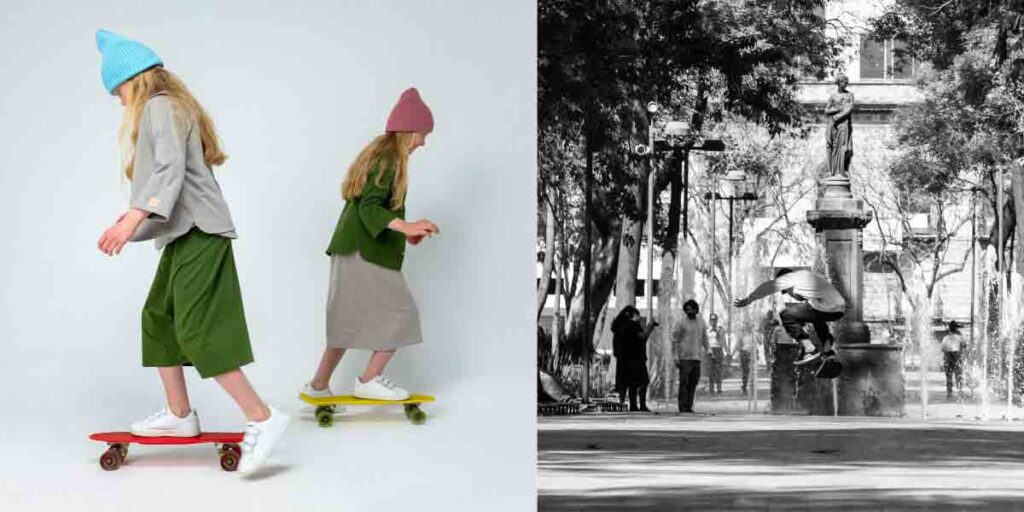
Open Dialogue
Talking to people who don’t like skateboarding can help. Listen to their concerns and explain why skateboarding is important to you. Finding common ground can build understanding and respect.
Safety First
Always wear safety gear like helmets and pads. Showing that you care about safety can change how people think about skateboarding. It shows responsibility and helps prevent accidents.
Media and Culture
Positive media coverage can make a big difference. Highlighting the achievements of skateboarders in the news, movies, and online can change public opinion. Sharing videos of amazing tricks and community efforts can inspire others.
Conclusion
People generally dislike skateboarders for many reasons, including the reinforcement of old stereotypes, worry about property destruction, noise complaints, safety concerns, and cultural differences. Some of these are valid, while many are based on misunderstandings and a lack of knowledge.
A growing number of people are interested in skateboarding; therefore, most of these issues should be addressed through education and open conversation. It is high time people changed their perspective toward skateboarding. We could help people understand why these athletes are hated and bring more tolerance and acceptance in society.
Understanding and realizing fully why the public discriminates against skateboarders can help narrow the gap between them and the rest of the world. Once these root dislikes are taken care of, coexistence between the groups will become easier. This way, all the skateboarders can be respected and valued for their contributions to culture and sports.
FAQs on Why People Dislike Skateboarders
Why do people think skateboarding is not a sport?
Some people think skateboarding is just a fun hobby; it is not a sport. They might not know it needs skill, practice, and physical effort like other sports. Skateboarding has competitions and professional athletes, too.
Is skateboarding every day good exercise?
Yes, skateboarding every day can be a good exercise. It provides a full-body workout that strengthens your legs, core, and upper body. This sport improves balance, coordination, and flexibility. It also offers cardiovascular benefits. It’s a fun way to stay active and can help burn calories, build muscle, and increase overall fitness.
Why does skateboarding hurt so much?
Skateboarding can hurt because you might fall and get scrapes or bruises. Learning new tricks and improving skills often means losing balance and tripping. It is important to wear safety gear like helmets, knee pads, and elbow pads. These safety gears help reduce injuries and make skateboarding safer.
Are skateboarders troublemakers?
Some people have a stereotype that skateboarders are not responsible. But most skateboarders are responsible and enjoy their sport. A survey showed that 95% of skateboarders feel safer in skateparks than in other public places. This suggests they prefer designated areas and help keep the community safe.
What can communities do to reduce conflicts with skateboarders?
Communities can build more skate parks and designated areas for skateboarding. This provides skateboarders with safe places to practice while keeping public spaces accessible for everyone.
How can skateboarders avoid damaging property?
Skateboarders can avoid damaging property by respecting public spaces and using appropriate areas for tricks. Encouraging the use of designated skate parks can also help reduce property damage.
Is skateboarding dangerous?
While skateboarding does carry some risks, wearing protective gear like helmets and pads can greatly reduce the chance of injury. Responsible skating practices also help make the sport safer.
How can I get involved in supporting the skateboarding community?
You can support the skateboarding community by volunteering at local skate events, advocating for more skate parks, and promoting positive stories. Engaging with skateboarders and understanding their passion can also help build a supportive community.

